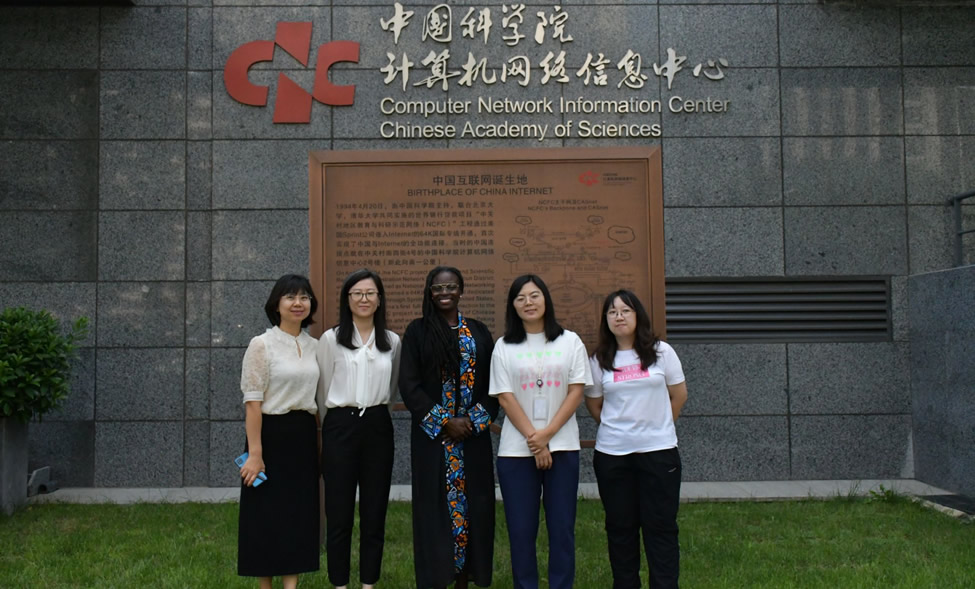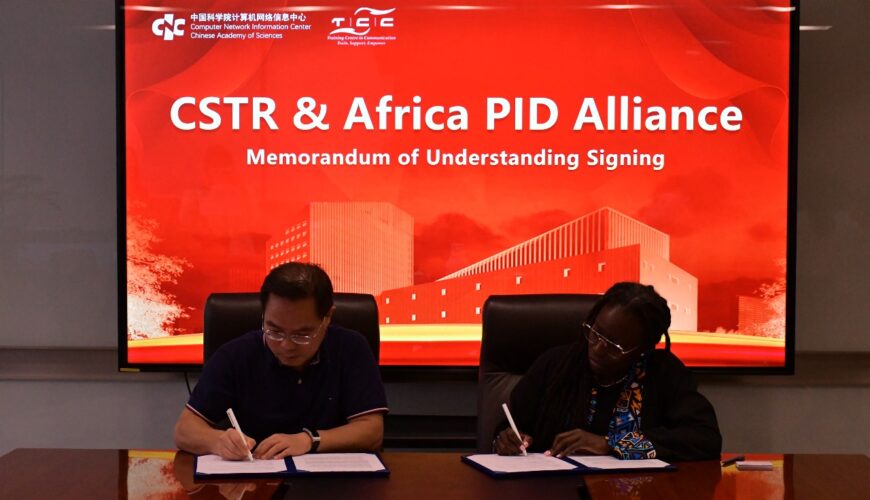The Africa PID Alliance, an initiative under the Training Centre in Communication (TCC Africa), has officially partnered with the Computer Network Information Center (CNIC) at the Chinese Academy of Sciences to advance international collaboration through the development and use of Persistent Identifiers (PIDs).
This partnership highlights the growing importance of effective PID systems in managing the expanding variety of science and technology resources. By focusing on the development and use of their respective PID systems—CNIC’s Common Science and Technology Resource Identifier (CSTR) and the Africa PID Alliance’s Digital Object Container Identifier (DOCiD™)—the collaboration aims to enhance communication and cooperation between the two organizations.
“As digital research outputs continue to grow rapidly, robust PID systems are essential for reliable data location, access, and citation,” remarked Joy Owango, Project Lead of the Africa PID Alliance. “The CSTR and DOCiD™systems are designed to meet this need by offering unique, persistent identifiers that ensure long-term discoverability and accessibility.”

The partnership will also support cross-continental community engagement and technical development, fostering new opportunities for researchers in Africa and beyond to share knowledge and collaborate on a global scale. This initiative represents a step toward enhancing international research infrastructure and promoting greater scientific cooperation.
More on the Common Science and Technology Resource Identifier (CSTR)
The Common Science and Technology Resource Identifier (“CSTR”) is the world’s unique persistent identifier to locating, accessing, and manipulating science and technology resources.
CSTR aims to promote the interconnection among various science and technology resources, to promote the openness and sharing of science and technology resources.
Find out more here: https://www.cstr.cn/doc/specification/
About the Computer Network Information Center,Chinese Academy of Science,中国科学院
CNIC is an informatization research institution to support research and socioeconomic development. CNIC has established partnerships with international academic organizations such as EGI Foundation, GéANT, GWDG, Korea Institute of Science and Technology
Find out more here: http://english.cnic.cas.cn/
More on the ‘Digital Object Container Identifier (DOCiD™)
The Africa PID Alliance (APA) is addressing the need for comprehensive scholarly data identification in Africa by proposing a hybrid model that combines locally created handles with DOIs. This model will enhance the visibility and preservation of research, including patents and indigenous knowledge, by consolidating all related data in a single digital object container. Find out more here: https://africapidalliance.org/#
About the Africa PID Alliance (APA)
The AFRICA PID ALLIANCE mission is to secure the future of African Innovation, Indigenous Knowledge and Cultural Heritage. We are also striving to support scientists and inventors to disseminate and commercialize their research innovations. Digitizing of research outputs is a real challenge in Africa. Through the Africa PID Alliance innovative projects, we provide reliable open research infrastructure services which provides access to knowledge and metadata about digital objects closer to the wider communities, including indigenous knowledge and patent metadata, starting from Africa. Africa PID Alliance is part of the Open Infrastructure Program of the Training Centre in Communication (TCC-AFRICA).

